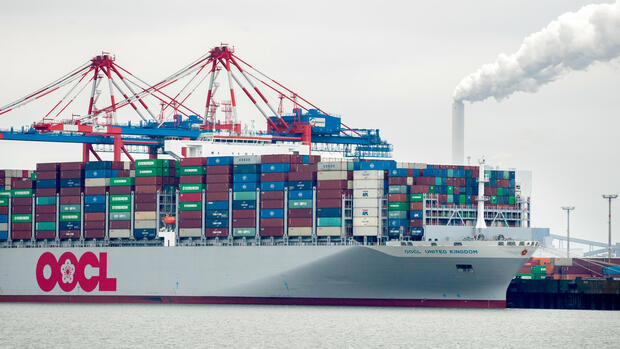According to the IMF, an improvement in economic growth is not in sight for the time being.
(Photo: dpa)
Washington, Berlin The International Monetary Fund expects only slight economic growth in the coming years, despite a strong labor market. “Growth remains historically weak – now and in the medium term,” said IMF boss Kristalina Georgieva on Thursday in Washington. “We expect global growth to be around 3 percent over the next five years – our lowest medium-term forecast since 1990.”
The average for the past two decades was 3.8 percent. More digitization, more investments in renewable energies, more structural reforms and more cooperation on the international stage are now central instead of geopolitical tensions.
This year, India and China would account for half of global growth. Growth is slowing down in 90 percent of industrialized countries, including the euro area. High interest rates would weigh on demand there.
Russia’s invasion of Ukraine has worsened already strained US-China relations, exacerbated the global inflationary crisis and fueled world hunger. “With geopolitical tensions rising and inflation still high, a robust recovery remains elusive,” Georgieva said.
The IMF wants to present its new economic outlook next Tuesday during the spring conference in the US capital. Back in January, he had already predicted global growth of just 2.9 percent for this year – 0.5 percentage points less than in 2022. Georgieva also emphasized on Thursday that economic growth of less than three percent is to be expected.
Georgieva also sees the geopolitical tensions caused by the Ukraine war and the poor relationship between the US and China as the cause of the slow global economy.
(Photo: dpa)
According to the IMF, the central banks, which are currently raising interest rates more than they have been in decades, have an important role to play because of the persistently high inflation. According to the head of the IMF, the trend will continue.
At the same time, the central banks would also have to pay attention to financial stability, which recently came to the fore again due to the collapse of several banks in the USA and Switzerland. Should the banking system become unstable, monetary policymakers would have to make more complicated trade-offs between inflation and protecting the financial system, she added. “You need to be more alert and agile than ever.” Basically, banks have become more resilient since the financial crisis of 2008.
More: Why China doesn’t have to fear inflation
